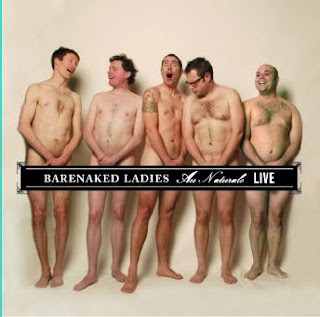Which brings us to the following ditty making the rounds on the web: A letter from a reader of the St. Petersburg Times responding to the newspaper’s solicitation of ideas for “How Would You Fix the Economy?”
“There's about 40 million people over 50 in the work force - pay them $1 million apiece severance with stipulations.
1) They leave their jobs. Forty million job openings - Unemployment fixed.
2) They buy NEW American cars. Forty million cars ordered - Auto Industry fixed.
3) They either buy a house or pay off their mortgage - Housing Crisis fixed.
Like I have been saying, they are bailing out the wrong people.”
At first blush, it’s seems so reasonable – even though it’s pretty obvious that the writer is over 50. But if you do the math, you find out that 40 million million is 400 trillion. So we’re back to the “t” word again.
Let’s just stick with the Barenaked Ladies and fantasize. Enjoy their lyrics:
“If I had a million dollars
(If I had a million dollars)
I'd buy you a house
(I would buy you a house)
If I had a million dollars
(If I had a million dollars)
I'd buy you furniture for your house
(Maybe a nice chesterfield or an ottoman)
And if I had a million dollars
(If I had a million dollars)
Well, I'd buy you a K-Car
(A nice Reliant automobile)
If I had a million dollars
I'd buy your love
If I had a million dollars
I'd build a tree fort in our yard
If I had million dollars
You could help, it wouldn't be that hard
If I had million dollars
Maybe we could put like a little tiny fridge in there somewhere
You know, we could just go up there and hang out
Like open the fridge and stuff
There would already be laid out foods for us
Like little pre-wrapped sausages and things
They have pre-wrapped sausages but they don't have pre-wrapped bacon
Well, can you blame 'em
Uh, yeah
If I had a million dollars
(If I had a million dollars)
Well, I'd buy you a fur coat
(But not a real fur coat that's cruel)
And if I had a million dollars
(If I had a million dollars)
Well, I'd buy you an exotic pet
(Yep, like a llama or an emu)
And if I had a million dollars
(If I had a a million dollars)
Well, I'd buy you John Merrick's remains
(Ooh, all them crazy elephant bones)
And If I had a million dollars
I'd buy your love
If I had a million dollars
We wouldn't have to walk to the store
If I had a million dollars
Now, we'd take a limousine 'cause it costs more
If I had a million dollars
We wouldn't have to eat Kraft Dinner
But we would eat Kraft Dinner
Of course we would, we’d just eat more
And buy really expensive ketchups with it
That’s right, all the fanciest ke... Dijon ketchups!
Mmmmmm, Mmmm-Hmmm
If I had a million dollars
(If I had a million dollars)
Well, I'd buy you a green dress
(But not a real green dress, that's cruel)
And if I had a million dollars
(If I had a million dollars)
Well, I'd buy you some art
(A Picasso or a Garfunkel)
If I had a million dollars
(If I had a million dollars)
Well, I'd buy you a monkey
(Haven't you always wanted a monkey?)
If I had a million dollars
I’d buy your love
If I had a million dollars, If I had a million dollars
If I had a million dollars, If I had a million dollars
If I had a million dollars
I'd be rich”
.jpg)


















